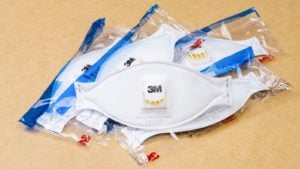[Editor’s Note: “9 Stocks to Buy to Weather the Recession” was originally published on April 1, 2020. It is regularly updated to include the most relevant information.]
Unless you’ve been living in a submarine and cut off from all communications, you know that the markets have tumbled badly due to the novel coronavirus. And with so many publicly traded companies printing red ink, it’s tempting to go contrarian and just consider everything as stocks to buy. Given the wide-scale devastation, though, it’s better to assume the worst. That’s right, I’m talking about a recession.
Over a six-week period, more than 30 million Americans have filed for unemployment benefits. If you think that portends rough waters ahead, you’re not alone. According to Dr. Zachary Cohle, assistant teaching professor of economics at Quinnipiac University:
“The U.S. was likely to slip into a recession before the first Covid-19 cases appeared within its borders. The disruption in East Asian markets, where many supply lines are integrated, caused one of the biggest markets for exports in the world to suddenly demand less consumer goods. The recent reaction to the virus has expediated our slip into recession.”
In other words, you should align your stocks to buy with options that will perform reasonably well during a downturn. If Dr. Cohle’s warning wasn’t enough, consider the sobering words of Osman Kilic, Quinnipiac University’s finance department chair and director of the Global Asset Management (GAME) Forum, who stated:
“What we are facing is a potential economic depression like scenario that we have not seen since the Great Depression. … What we are experiencing today is a sudden, vast drop in economic activity from both sides of supply and demand, which is contagiously spreading to our financial markets.”
Again, the message is clear: Recession-proof stocks to buy are your best bet for beating the coronavirus.
Recession-Proof Stocks to Buy: Clorox (CLX)

When the coronavirus first reached our country, I knew that the greatest threat wasn’t the virus itself. Instead, it was the widespread panic that would afflict Americans, causing unnecessary supply chain disruptions and social upheaval. If you want proof, just look at Clorox (NYSE:CLX) and CLX stock.
As a secular investment, Clorox is virtually guaranteed demand no matter what. Whether we’re in a bull or bear market, people need to clean up after themselves. But with Covid-19 spreading throughout the U.S., it was inevitable that CLX stock would move higher.
And don’t think that the company is a one-trick pony. Based on our reaction to the coronavirus, the next infectious disease could spark similar chaos. From what White House health advisor Dr. Anthony Fauci has recently suggested, that disease could again be the coronavirus.
Finally, as evidence of Clorox’s resilience, shares continue to rise higher. This pandemic was a paradigm-shattering event for every American, forever changing how we view mundane recession-resistant stocks to buy.
Johnson & Johnson (JNJ)

As the Centers for Disease Control and Prevention have noted, no vaccine exists for preventing Covid-19. Therefore, if you get the disease, your best bet is to stay at home and rest. Further, you should mitigate your symptoms with over-the-counter medicines for the “regular” flu. Therefore, I like Johnson & Johnson (NYSE:JNJ) and JNJ stock, despite its turbulent trading this year.
First, you have the extreme hoarding behavior of panicked consumers. As coronavirus statistics ticked higher, folks began emptying shelves of over-the-counter meds. From an investment perspective, that benefits stocks to buy in the general pharmaceutical sector. But it also put many Americans in a moral quandary. Still, you got to do what you got to do, which cynically but invariably bolsters Johnson & Johnson’s sales.
Second, those folks who missed out on buying medication will remember a stark lesson. When things normalize, they’ll buy meds, just in case. I believe this transformative experience makes JNJ stock one of the most compelling stocks to buy for a possible recession.
Rite Aid (RAD)

Prior to the coronavirus, Rite Aid (NYSE:RAD) was on a very difficult recovery path. With the pharmacy retail landscape changing due to demographic shifts and the rise in competition, RAD stock has been speculative. Further, developments in retail technology were threatening to make Rite Aid irrelevant.
Today? Because of the coronavirus, RAD has quickly become one of the more intriguing stocks to buy. I’m not suggesting that shares don’t have problems, because they do. But Covid-19 has suddenly made the embattled organization more relevant.
Of course, the key question is, can it build off this momentum? If this virus changes social behaviors like I think it will, the answer may be yes. With access to medication and other key supplies becoming a top priority, RAD stock may enjoy longer-term gains.
Also, Rite Aid has stronger appeal to older demographics, along with communities of color. As multiple reports have indicated, these demos have been disproportionately hit harder from the Covid-19 pandemic. Thus, any effort to serve the underserved should generate at least some positive momentum.
Sprouts Farmers Market (SFM)

When the pandemic became an everyday reality for Americans, I had strong optimism for Kroger (NYSE:KR). However, since I’ve already talked about the grocery store giant, I want to share some love for Sprouts Farmers Market (NASDAQ:SFM). Featuring a riskier profile compared to Kroger, I nevertheless like SFM stock, especially if we hit a recession.
I know what you’re thinking: If we have a downturn, Sprouts’ emphasis on organics will quickly rack up grocery bills. While true, I look at it this way — who the heck wants to eat rice and beans for the next six months? I’m not saying that’s the only thing Kroger specializes in. However, variety is the spice of life.
Furthermore, consider that fewer people will likely go out to eat at restaurants in a recession. In fact, a coming meat shortage suggests that dining establishments may suffer even more pain.
Therefore, SFM stock may absorb consumer dollars as an alternative splurging event. Thus, don’t ignore this name when searching for ideal stocks to buy.
3M (MMM)

Perhaps one of the lasting images of this pandemic is the N95 face mask. Once the staple of painters and other blue-collar occupations, 3M’s (NYSE:MMM) masks have become this year’s golden commodity. Indeed, if we weren’t in a state of emergency, you could easily mark up these masks for a 500% premium. But that’s not the only reason why I’m pegging 3M stock in my gallery of stocks to buy.
Rather, the knowledge that so much of our industrial supply chains are dependent on China has been a wake-up call. To be fair, it was a wake-up call decades ago. But shameless hypocrisy and an election year dictate that we must be serious about this now.
Plus, the government has raised eyebrows for flip-flopping on guidance regarding the wearing of protective masks. With such glaring contradictions, people will likely buy masks for future infectious disease outbreaks. Therefore, I like MMM stock as a long-term idea.
Sportsman’s Warehouse (SPWH)

Several years ago, reality TV shows like Doomsday Preppers debuted to a largely bemused audience. Certainly, it bewildered mainstream Americans that some would go to extreme lengths to protect themselves against a crisis. Well, no one’s laughing now. At this point, you probably can’t build your own bunker. However, you can shop at Sportsman’s Warehouse (NASDAQ:SPWH), which supports my case for SPWH stock.
Here’s my reasoning — one of the behaviors that the coronavirus will change is a shift toward conservative values. I don’t necessarily mean that people will vote Republican; instead, they will simply lose their inhibitions about firearms. In fact, you’re already seeing this as Asian Americans (who traditionally vote Democrat) are buying guns en masse to protect themselves against racist backlash.
And when firearms newbies go to Sportsman’s Warehouse, I think they’ll be pleasantly surprised at the courteousness and professionalism that the company representatives exhibit. Naturally, this is a big plus for SPWH stock.
American Outdoor Brands (AOBC)

On a similar note, investors may want to consider American Outdoor Brands (NASDAQ:AOBC) in their search for stocks to buy. Best known for its Smith & Wesson brand of firearms, AOBC stock has always had some notoriety. However, with Covid-19 turning many people into “Covidiots,” the emotional barriers toward purchasing firearms have substantially lessened.
Some of our international friends may question our nation’s obsession with guns. I have a simple answer. Because Americans are so violent, innocent, law-abiding citizens need access to effective self-defense tools.
If we enter a recession — which leading economists suggest we will — violence will only increase in the U.S. So if you’re here, buy a gun. And while you’re at it, take a look at AOBC stock.
Shotspotter (SSTI)
Speaking of firearms, this is a great time to consider Shotspotter (NASDAQ:SSTI). According to the company’s website, 80% of gunshot incidents are never reported to 911. Utilizing advanced technologies, Shotspotter helps pinpoint firearm discharges, providing a valuable tool for law enforcement.
In any economic or market environment, SSTI stock is a relevant investment. Prior to the pandemic, several law enforcement agencies’ budgets were already stretched. With Shotspotter’s technology, this enables greater efficiencies for police to handle high-profile crimes.
Further, if the coronavirus leads to a prolonged recession – which appears a likely event – crime rates may rise. With so many people losing their jobs, many on a permanent basis, the probability of unrest is very high. Therefore, you should keep close tabs on SSTI stock.
Lockheed Martin (LMT)

With Covid-19 dominating headlines, it’s natural to think that this is the only problem we have. Unfortunately, other problems threaten to turn global affairs into a chaotic mess. Therefore, even in a recession, defense names like Lockheed Martin (NYSE:LMT) belong on your list of stocks to buy.
First, locust swarms in the Middle East, Africa and South Asia threaten to destroy critical crops. According to Robert Rotberg, founding director of the Harvard Kennedy School’s Program on Intrastate Conflict, this could cause millions to starve. Obviously, this may lead to armed conflicts, necessitating a strong defense profile. In turn, this would help lift LMT stock.
Second, the oil price war between Saudi Arabia and Russia once threatened to disrupt politically and economically vulnerable countries. While OPEC+ nations agreed to an unprecedented production cut, that doesn’t change the narrative much, with oil prices recently falling below zero at one point.
That tells me that the global economy is far worse than the headlines suggest, which bodes poorly for geopolitical stability. Cynically, though, such circumstances will bolster LMT stock.
Booz Allen Hamilton (BAH)

Because the coronavirus badly disrupted daily life for virtually all Americans, most folks are only focused on the bare essentials. But in the digital age, cybersecurity and other protection mechanisms cannot be ignored. Therefore, I like Booz Allen Hamilton (NYSE:BAH) not only as a play on the Covid-19 disruption but also as a long-term opportunity.
Unsurprisingly, while many bright acts of humanity have occurred during this pandemic, some have chosen to advantage the crisis. One consequence of a highly advanced society is that a lone wolf can render exponential damage. As The Hill reported, cyber crimes have increased dramatically during this compromised period. Still, because this falls under Booz Allen Hamilton’s specialty, I view this as a positive for BAH stock.
That said, cyber crimes will only get more advanced as technology improves. Therefore, I see BAH stock growing in relevance accordingly.
A former senior business analyst for Sony Electronics, Josh Enomoto has helped broker major contracts with Fortune Global 500 companies. Over the past several years, he has delivered unique, critical insights for the investment markets, as well as various other industries including legal, construction management, and healthcare. As of this writing, he did not hold a position in any of the aforementioned securities.

